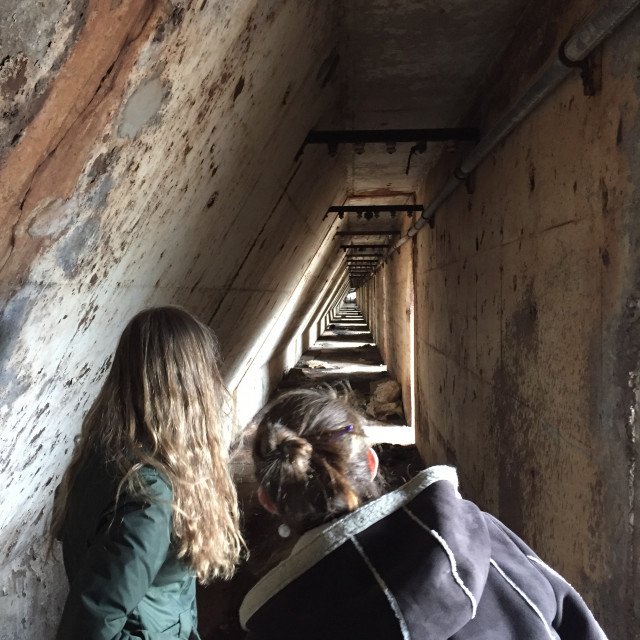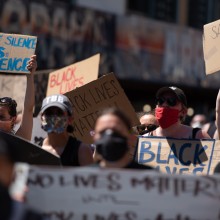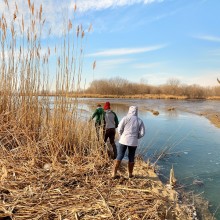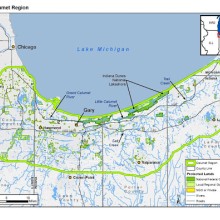
Classes
Study Chicago with Chicago Studies (CHST)
Chicago Studies supports students and instructors in studying Chicago in and beyond the classroom. We cross-list both Chicago-focused (content is about Chicago) and Chicago-engaged courses (that regularly use Chicago examples, data, or experiences) as Chicago Studies (CHST) classes. We also sponsor special curricular opportunities like Chicago Studies' new CIV and CIV/ARTS sequences (new in 2025). All CHST classes count toward the College's interdisciplinary Certificate in Chicago Studies.
For instructors, we support Chicago-based teaching and learning with course/instructional design consultation, content resources, and micro-grants and logistical support for experiential learning.
CHST Classes – Autumn 2025
Chicago Studies (CHST) cross-listed classes explore aspects of Chicago's ecology, culture, politics, history, social structure, and economic life, either as their primary focus or as a significant example/case study. Many engage students directly in the life of the city’s communities, cultural institutions, or community organizations through experiential learning and fieldwork. You can search for Chicago Studies classes when registering -- choose "Chicago Studies" as the department OR look for "CHST" classes in AIS.
All CHST classes contribute to fulfillment of the academic requirements of the College’s interdisciplinary Certificate in Chicago Studies.
This class introduces Chicago's history and explores how successive visions of abundance shaped both its cultural ideals and its material development. Never-ending fields of wheat spurred the creation of the futures market. The Great Fire of 1871 made way for new centers of wealth and power. The 1983 World's Fair and University of Chicago reimagined cities, while downtown department stores marketed middle class domesticity. Home ownership and industrial employment made the impossible possible for diverse people from around the nation and the world... but then cows and hogs, rails and steel gave way to towers of concrete and glass, leaving much of the city behind as they did. How did Chicagoans face these unknown futures and respond to these events beyond their control. And how has our storied "city of broad shoulders" come to understand itself today?
Taught by Nick Foster on Tuesdays and Thursdays from 2:00pm - 3:20pm. Got questions? Email Dr. Foster at nfoster@uchicago.edu.
Often described as a "City of Neighborhoods," Chicago has a fascinating network of community areas that were shaped by historical events and developments. Many of the city's neighborhoods include parks that have their own significant architectural, landscape and social histories. Taught by a professional historic preservationist and consulting historian, the class will introduce students to some of Chicago's most interesting historic neighborhoods and parks; expose them to key regional digital and on-site archives; and instruct them in appropriate methodologies for conducting deep research on sites and landscapes, with a special focus on Chicago's historic park system. Students will utilize an array of resources including Sanborn fire insurance maps, US Census records, historic plans, photographs, and archival newspapers to provide in-depth studies of unpreserved sites. The course will also expose students to historic preservation policies, methodologies, and guidelines to provide practical strategies for preserving lesser-known places and sites. As a Chicago Studies class, its pedagogy will also include excursions into the city, engagement with local guest speakers, and research in relevant Chicago-area archives/special collections.
Taught by Julia Bachrach on Fridays from 9:20AM to 12:20PM, so you haven't missed anything yet! Questions about this class? Email Julia Bachrach at jbachrach@uchicago.edu.
Why take CHST classes?
-
 Learn more about Chicago
Learn more about Chicago
From any disciplinary or interdisciplinary perspective
-
 Get out of the Hyde Park "Bubble"
Get out of the Hyde Park "Bubble"
for fieldwork, community-based learning, or archival research
-
 Collaborate with peers & partners
Collaborate with peers & partners
to execute academic projects that impact Chicago communities
-
 Apply your urban theory
Apply your urban theory
to local data, local organizations, and local histories